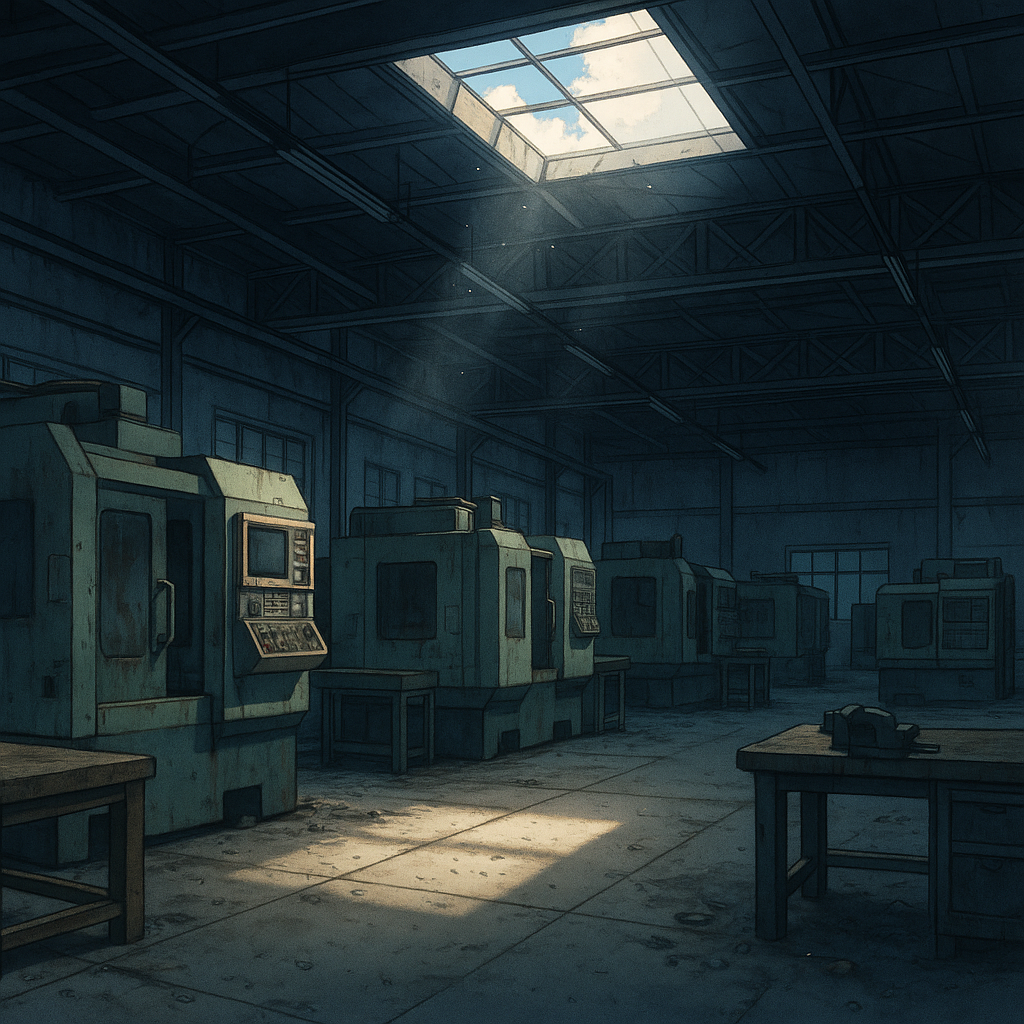+
+
+
+
Manufacturing & Prototyping in the EU: Flatlining or Fighting Back?

One Lonely Part, Seven Rejections
Picture this: I need a tiny sleeve — 28 mm outer diameter, 40 mm long, internal M20 thread, concentricity you could measure with a micrometer and a prayer. Quantity: one. I called several shops. The replies formed a chorus:
“Glad to help. Minimum order is one thousand pieces.”
I might as well have asked them to mill a unicorn horn.
The Great MOQ Wall
Why the mass refusal? Minimum-order quantities have swollen into a fortress. Spreadsheet logic rules the factory floor: if the spindle is not humming for an entire shift, the job is noise, not profit. Small runs are tossed over the drawbridge.
Paperwork Versus Chips
Even a generous machinist blinks at the mountain of forms. CE stamps, REACH declarations, ISO audits, GDPR vendor portals — paperwork multiplies faster than swarf. For a single prototype, compliance takes longer than machining.
The Disappearing Craftsman
Old-school toolmakers are clocking out for good. Their apprentices slide into software jobs where the only cutting fluid is coffee. Result: gleaming CNC cells idle because no one feels like tweaking G-code for a hobbyist with a dream.
High-Voltage Sticker Shock
Energy prices after the 2022 spike never fully cooled. A four-axis lathe in Bavaria now costs nearly double to run compared with 2019. Every kilowatt hurts, so shops chase long, predictable contracts that amortize the pain.
Shenzhen’s Siren Song
Across the planet, a bureau in Guangdong whispers: “Upload your STEP file, we ship in ten days, MOQ equals one.” Price and convenience leave European suppliers looking like dial-up in a fiber world.
Is EU Manufacturing Finished?
Maybe not finished, but definitely punch-drunk for lone inventors.
- Fixed overheads crush low-volume jobs.
- Regulation stacks higher than toolholders.
- Skilled labor leaks into other sectors.
- Asian bureaus offer speed, service, and curiosity-friendly pricing.
Four Ways to Stop the Flatline
- Nurture Makerspaces: Community fab-labs live on one-off work and already own the compliance paperwork.
- Prototype-Size Exemptions: Lobby for a regulatory light mode on runs under five pieces.
- Instant Digital Quoting: Automated CAM plus transparent pricing can turn no-profit jobs into low-stress ones.
- Educated Buyers: Pay a premium for local quality. Unicorn parts deserve unicorn rates.
Conclusion: An ICU, Not a Morgue
Europe still builds legendary machines and breeds metallurgists who can smell hardness on the wind. The talent is there; access is not. My orphaned sleeve is a warning flare — fix the system, or more garage inventors will book one-way tickets to Alibaba.